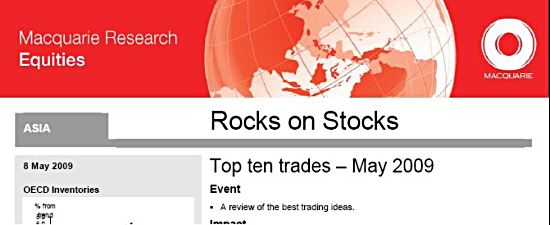A fresh memo to clients from Howard Marks of Oaktree Capital is an illuminating read.
It is titled 'Getting Lucky' but before you get to it, here's our quick intro on the man and Oaktree as many investors in Singapore are not familiar with the names:
Who is Howard Marks? Howard Marks, 67, chairman of Oaktree Capital Management. Screenshot from Youtube video.He is chairman and co-founder of Oaktree Capital. Over the last 24 years, he has sent many memos to clients
Howard Marks, 67, chairman of Oaktree Capital Management. Screenshot from Youtube video.He is chairman and co-founder of Oaktree Capital. Over the last 24 years, he has sent many memos to clients
Memos from 1990 to the present are available online at the Oaktree website and should make for an enlightening read.
Even Warren Buffett, arguably the greatest investor of all time, is a fan. He has been quoted saying: "When I see memos from Howard Marks in my mail, they're the first thing I open and read. I always learn something."
And if you want more of Mark's thoughts on investing, there is the book, The Most Important Thing: Uncommon Sense for the Thoughtful Investor, which he wrote and was published in 2011.
Oaktree performance
In April 2012, Oaktree listed shares on the New York Stock Exchange at an IPO price of US$43, raising US$380 million.
 Oaktree Capital shares touched US$60 recently for a market cap of US$9.1 billion and trailing PE of 10X. Chart: Bloomberg
Oaktree Capital shares touched US$60 recently for a market cap of US$9.1 billion and trailing PE of 10X. Chart: Bloomberg
According to Forbes in Sept 2013, Oaktree had US$76 billion assets under management, including money from 75 of the 100 largest U.S. pension plans.
Being successful in making lots of money for his clients, Marks, 67, also has enjoyed great wealth. According to Forbes, he has a net worth of US$1.9 billion.
Illuminating section in the latest memo to clients:
|
♦ Alternatively, a prudent, skillful investor may formulate a reasonable view of the future, only to see the world go off the rails and his investments fail. He might be described as “wrong for the wrong reason” (or “unlucky”). ♦ An investor may take an appropriately cautious stance – let’s say toward tech stocks in 1997 or residential mortgage backed securities in 2005 – only to see an irrationally overpriced market become more so, as prices soar for years. He looks terrible, a victim of the old adage that “being too far ahead of your time is indistinguishable from being wrong.” ♦ Further, in a special case of being wrong as to timing although perhaps not fundamentals, an investor may take a concentrated position in a laughably underpriced stock, using a huge amount of borrowed money. But before the expected appreciation can take place, a market crash brings on a margin call, and he’s wiped out. As John Maynard Keynes said, “The market can remain irrational longer than you can remain solvent.” ♦ Last year marked the passing of Joe Granville, a technical analyst whose warning in 1976 was followed by a 26% two-year decline, winning him respect and fame. But his next accurate call wouldn’t come for 24 years, when he told people to sell tech stocks in 2000. Was it skill back in 1976, or a lucky call that turned out right when events went his way? Regardless, he became one of many in the investment business who get famous for having been “right once in a row.” The first thing I remember learning at Wharton in 1963 was that the correctness of a decision can’t be judged from the outcome. Because of the randomness at work in the world and the unpredictability of the future, lots of bad decisions lead to good results, and lots of good decisions end in failure.
|







